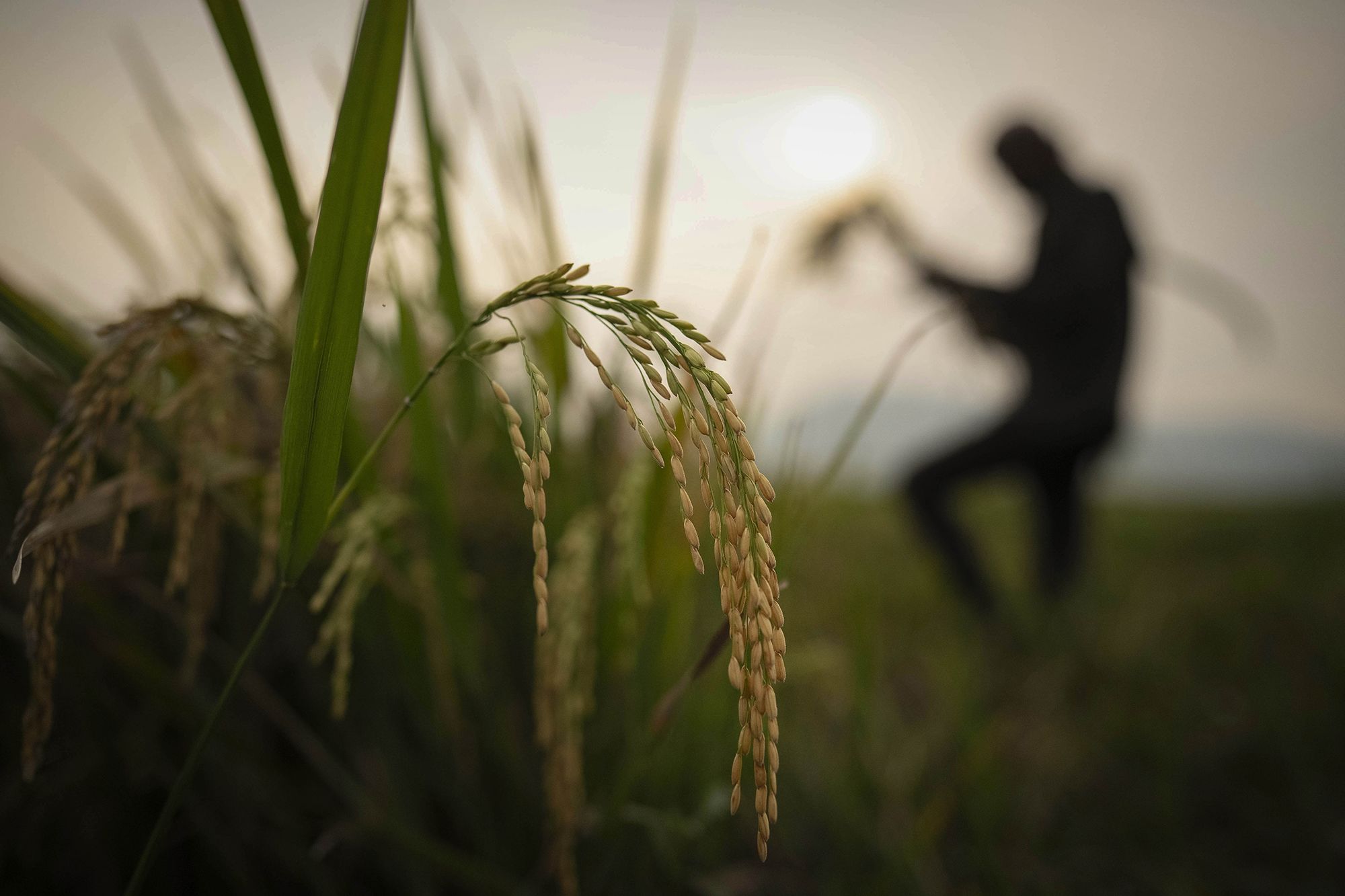Worried by the soaring price of foodstuffs, especially staple food like rice, the Federal Government has set machinery in motion to distribute hundreds of thousands of 25kg bags of rice across the country to vulnerable groups.
The Minister of Information and National Orientation, Mohammed Idris disclosed last week that it has distributed 740 trucks of rice to the 36 states of the Federation and the Federal Capital Territory FCT, Abuja.
According to him, each state and the FCT was given 20 trucks containing 1,200 bags of 25kg of rice and the commodity is to be distributed to the most vulnerable in the society.
He said President Bola Tinubu had directed the Minister of Agriculture, Mohammad Abubakar to ensure food was made available to Nigerians. He further explained that the distribution of the rice was also to ensure that the hardship in the country was ameliorated.
Reacting swiftly to the development, some Nigerians described it as a joke and wondered how 880,000 bags of 25kg of rice would address poverty or ameliorate hunger even among the millions of vulnerable people in the country.
They argued that the entire rice would not even go around poor people in just Local Government Councils, while some said the rice would not even get to the people the rice is meant for but would only get to political acolytes.
“How does this gesture address poverty or ameliorate hunger? It’s just unfortunate that Nigerians find themselves under the spell of propaganda. The ruling class has come up with another idea to get the masses at each other’s throats,” lamented Tunde Fadoju, a PR consultant in Lagos.
Questioning how that small quantity of rice would go around, Fadoju asked, “What is the population of vulnerable people in Lagos state vis-à-vis 24,000 bags of 25kg rice? The same applies to Kano state and the others.
“No vulnerable person will get a grain of rice. They will be confused about the sharing formula. It will just go the way of palliatives meant to soothe the pain of COVID-19.”
Also reacting, Benjamin Umuteme who spoke from Abuja, said the item released is a far cry from what is needed to address the hunger of vulnerable people in Nigeria. “For instance with a state like Lagos or Kano with a very high population of vulnerable people, what will 24,000 bags of rice do?
“While I acknowledge the government’s efforts, they should go beyond this system of tokenism that won’t help anybody,” added Mr. Umuteme.

Barrister Chudi Onwu of the NGO ‘Reaching Out’ said though the intention seems good in the long run will amount to a misplacement of priority. “Distributing foods to address the problem of hunger is not a wise and sustainable way to resolve the problem. The immediate and remote cause of the problem should be addressed rather. If not, we will keep going around in circles.”
“This is supposed to an extent to crash the price of food items like rice, however, the question is how sustainable is this? How are we sure that this rice will not be hijacked? How do we ensure this gets to the people it is meant for? Do we have a comprehensive register for the poor and vulnerable in society? Asked Jeremiah Agada, Communication Consultant and Social commentator.
Raising more worrisome issues, Agada further queried, “Are we sure this will not wound up in one chairman’s house to give out as palliative support’ to their loyalists and supporters?”
“Give Net not fish. Jesus would have given something to Peter to feed his family that morning but rather said let’s go back fishing and let down your net,” noted Egr. Mrs Rita Odogwu.
She said that 24,000 bags of 25kg of rice would not go around vulnerable people in local governments like Ajegunle, Okokomiako or Isolo in Lagos State with a population of 25 million people, what would be the ratio for sharing, she asked? “Government should provide light, cheap transport fare and other social amenities for the populace.
“Good gesture, no doubt, since it shows the government is concerned about the plight of the people, and it’s determined to sort it out. But the challenge is that this is not sustainable, and, in consequence, may not achieve the desired goals and objectives”, noted a Director General in the manufacturing industry that craved anonymity.
Speaking further, the DG raised more posers, “How will they determine the genuinely vulnerable Nigerians, because this society is not known to take cognizance of data, and use it as a guide in its policy formulation? Since past experiences, regarding palliative distribution, have always not been palatable, perhaps the government should bring back the idea of a commodity board.”
Describing the development as fruitless, Barrister Lyod Akinride said “This will be fruitless as there is no database of vulnerable persons and even if there is, after receiving the rice, they will remain in the same position. In management, steps like this are called ‘Nice to have’ and that is what this is.”
Also reacting, a techno-economist and a licensed Management Consultant, Dr. Dele Oyekan commended the efforts of the Federal government in easing the current economic challenge.

According to him, this would go a long way in reducing the current food crisis in Nigeria. “It also has the potential to reduce food inflation because it could crash the prices of food items in the market.”
He, however, urged the government to ensure proper monitoring. “It is important when distributing the rice or the food items so that the most vulnerable will get them. The food items should not end up with the rich or end up in the open market. If possible, the government could repeat this every quarter if not monthly over a given period. ‘
“Aside from sending food to the state governors directly, the federal government could also channel the food items directly to the local governments with a distribution template on a ward basis. With this, one can rest assured that the food items will get to the most vulnerable.”





